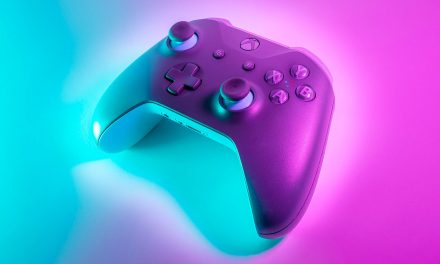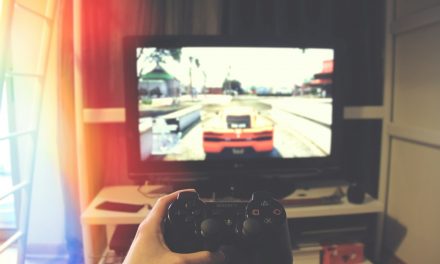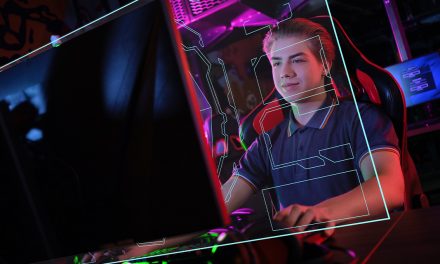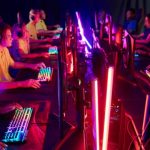Image: https://unsplash.com/photos/person-holding-game-controller-in-front-of-television-0woyPEJQ7jc
In recent times, gaming has enjoyed increased popularity, opening doors for improvements and innovations within the gaming industry. Blockchain technology has emerged as one of the frontrunners that intersects with gaming in multiple ways.
Blockchain Explained
Traditionally, when people thought of blockchain, they thought solely of cryptocurrency. Things such as Bitcoin volatility or Solana price analysis, as can be seen at Binance, Yahoo Finance and Bloomberg for example, may have come to mind, but blockchain is no longer strictly associated with cryptocurrency.
Blockchain works by using a decentralized and secure system to record transactions, which may be applied to various industries beyond just finance. Tech always has a potential to revolutionise. Typically, what inspires its creation is a problem needing to be solved. That’s why the market picks it up. A gap gets filled, something gets easier, a new route is opened up. The gaming industry is not shy, often being very very quick to look at a new tech and widen its eyes, envisioning the future in which this new tech gives them access to new forms of engagement and possibilities. In this case, with blockchain, buying, selling, and trading in-game assets is the exciting opportunity.
Decentralized Ownership
Traditionally, gamers are able to buy cosmetics in games – no, not blush and mascara (although that’s probably an option in some titles), these cosmetics include items like skins (think bodypaint and rare identities), weapons, or characters. But, ultimately, they would not really own them, as most games use a centralized server that is controlled by the game developers.
However, with the introduction of blockchain technology, decentralized ownership allows players to truly own their in-game assets by storing them on a secure and transparent blockchain network that identifies them as the true owners of the cosmetic. This ledger isn’t something that any game developer – however big or powerful – could or would override. This not only gives players more control over their virtual possessions but also opens up new possibilities for cross-game asset trading and ownership verification, which, put simply, is a really exciting prospect for committed players.
Non-fungible tokens (NFTs) allow players to take full ownership of their in-game items, independently of the game itself; it’s like buying a book from the bookstore rather than taking it out at the library. Even if the library never issues a single overdue notice, it’s nicer to know that that book is truly yours.
This means that players can buy, sell, and trade their virtual assets outside of the game environment, creating a new market for digital collectibles. Of course, most developers would prefer these players don’t create a second-hand market – the digital game market is a prime example of the industry’s efforts to stop reselling and boost profits – but they won’t have a choice in this next era. Additionally, blockchain technology ensures the authenticity and uniqueness of each item, preventing fraud and counterfeit items in the virtual world.
Play-to-Earn
Real-world value – having that feedback loop that goes from the virtual back into the real – is an exciting prospect for the gaming industry. The play-to-earn model harnesses that loop and gives players the opportunity to earn real-world money – in the form of crypto or NFTs – for playing the game and being successful.
Improved Transparency
Blockchain is known for its trustworthiness. Traditionally, games have had a question mark around, as players often have limited visibility into the game’s mechanics and economy. It’s like a stage in a theatre whereby the audience can only see wha the actors and director and technicians want them to see.
By contrast, with blockchain technology, every transaction and item ownership is recorded on a public ledger, increasing transparency and trust between players and developers. This can lead to a more fair and equitable gaming experience for all involved.
Cross-Platform Assets
Closed economies still have their place, just like they’ve always done. While our cultural age is dependent and thriving on multiversal crossovers and expansions, though, cross-platform assets are in high demand. If one player has something cool on one platform, why shouldn’t they have it on another? Yes, it may create an amorphous gaming world, where distinction between worlds is difficult to fully ascertain – however, what it does do is what the players want: it leaves the individualisation of the gaming experience directly in the players hands. This industry model enhances the value of in-game items and promotes cooperation between different game developers.
Decentralized Marketplace
With blockchain technology, decentralized gaming marketplaces can be created where players can buy, sell, and trade their in-game assets securely and transparently without the need for intermediaries. This allows for a more fluid and efficient economy within the gaming community, benefiting both players and developers alike.
It means that the players can set their own prices for their assets, and the transaction fees are lower.
Enhanced Security
Security is of utmost importance in the world of online gaming, and a number of high-profile breaches over the years have demonstrated that better than in almost any other industry. Who remembers the infamous Zynga hack, for instance? It affected many of us, after all.
But it’s not just Zynga, and the company have done a lot since to bolster their protective, safeguarding measures. Still, around the gaming ecosystem, many gamers have been scammed or hacked before, losing their valuable items. Blockchain is decentralized and, as such, more secure than traditional centralized systems. The transactions are recorded on a ledger, which makes it much harder to alter or hack.
Funding through Tokenization
With blockchain, game developers can raise funds for their games through tokenization. This allows them to sell digital tokens that represent ownership in the game or its assets, providing a new way for developers to secure funding. Additionally, tokenization can also help increase player engagement and loyalty by giving them a stake in the game’s success.
Player-Centric Management
Decentralized governance can be implemented with blockchains, which means that players can have a say in the game’s development and evolution. This player-centric management approach can lead to a more community-driven and transparent gaming experience, fostering a stronger connection between developers and players. By involving players in decision-making processes, game developers can create games that better cater to the desires and preferences of their audience.
Blockchain-Based Platforms
Blockchain enables the creation of completely new gaming platforms that make use of a decentralized network. These platforms can offer developers tools to create new and exciting blockchain-based games. The goal is to make it easier for developers to create games that incorporate features such as integrated wallets, marketplaces, and token support into their games.
Portable Player Identity
Blockchain may help in creating portable player identities, which means that a gamer’s character, items, rankings, achievements, reputation, or statistics can be transferred to a different game. This would allow players to maintain their progress and virtual possessions across multiple games, providing a seamless and personalized gaming experience.
Final Words
Blockchain technology is revolutionizing the gaming industry in multiple ways. From enabling secure transactions to fostering player ownership of in-game assets, blockchain has the potential to transform how gamers interact with their favorite titles. As the technology continues to evolve, we can expect even more innovative solutions to enhance the gaming experience.








![[Rumor] Chrono Trigger remake or remaster could already be in development](https://vgleaks.com/wp-content/uploads/2026/02/chrono-trigger-150x150.jpg)


![[Rumor] The Game Awards 2026: GTA 6 Might Not Make It In Time](https://vgleaks.com/wp-content/uploads/2026/02/GTA6-awards-150x150.jpg)

